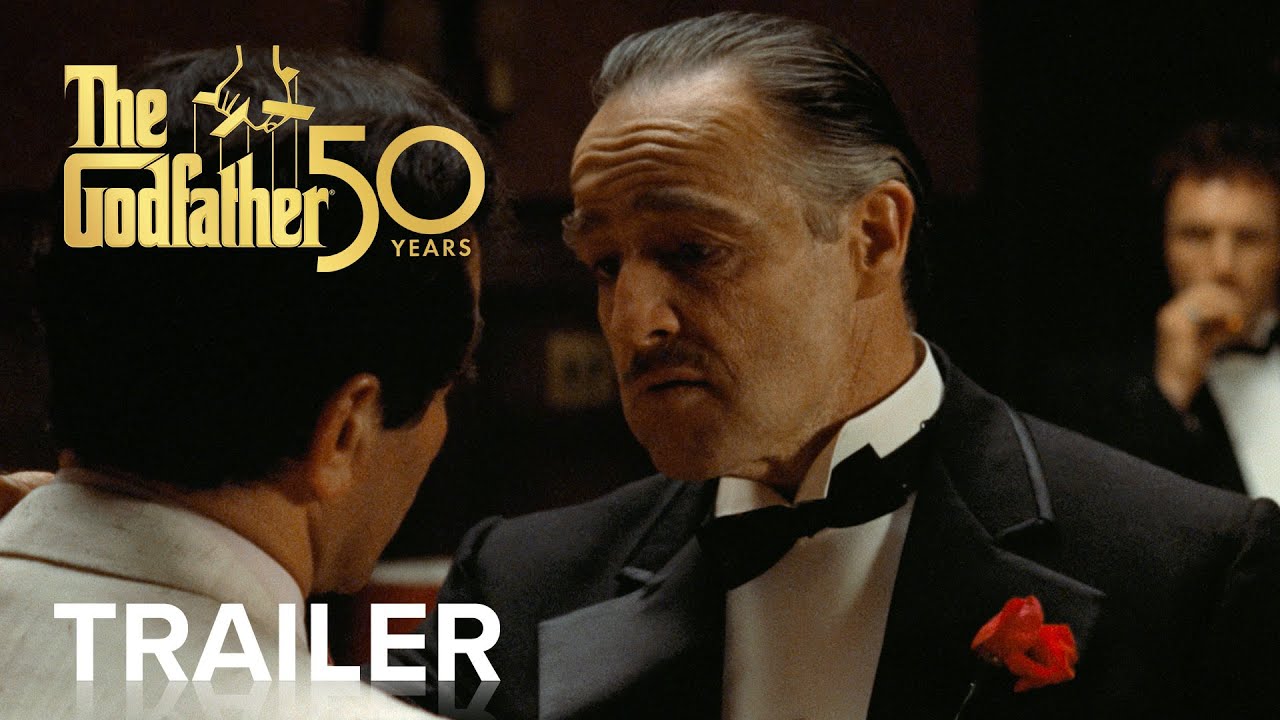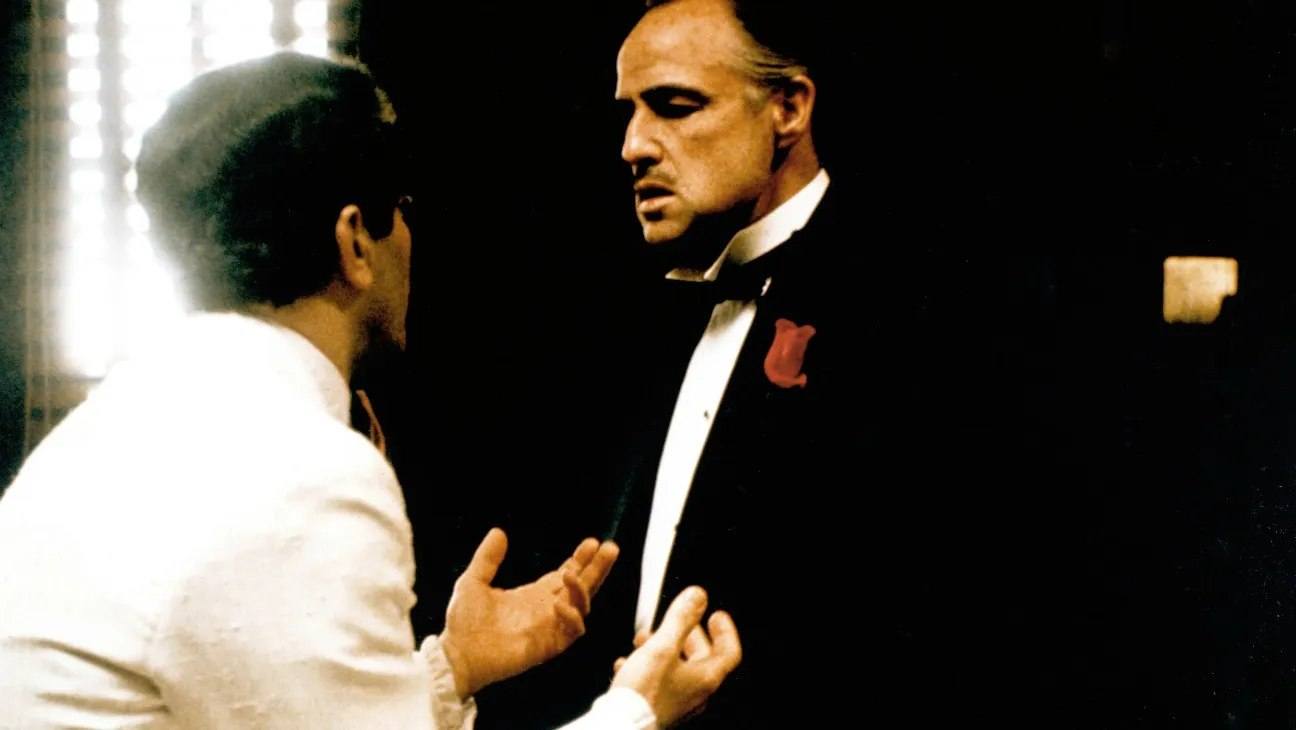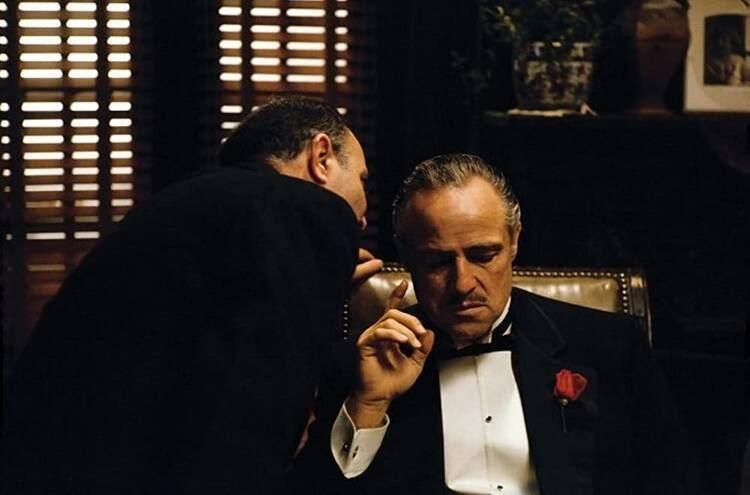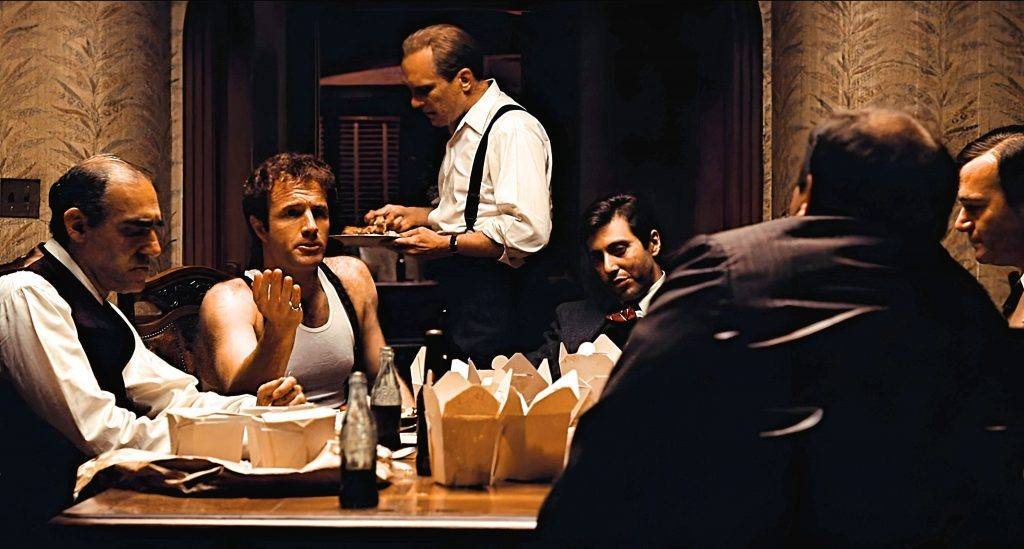The Godfather (1972)

The Godfather (1972) is one of the most iconic and influential films in the history of cinema. Directed by Francis Ford Coppola and based on the novel of the same name by Mario Puzo, the film tells the story of the Corleone crime family, who are of Italian descent. Set over a ten-year period from 1945 to 1955, it chronicles the rise and fall of this powerful mafia family, highlighting themes of power, loyalty, and betrayal.
The film begins with the wedding of Vito Corleone’s daughter, Connie, and introduces the complex relationships within the mafia world. Vito Corleone, the “Godfather,” is a powerful crime boss who uses his influence and respect to help those in need, but also to maintain his family’s dominance in the criminal underworld. After an assassination attempt on Vito’s life, his youngest son, Michael, who had previously distanced himself from the family business, is reluctantly drawn into the world of organized crime as he seeks revenge and strives to protect his family.
The film features several memorable characters, each contributing to the complex narrative. Vito Corleone, portrayed by Marlon Brando, is the patriarch of the Corleone family. He is a shrewd, calculating leader who commands both fear and respect. His son, Michael Corleone, played by Al Pacino, is initially an outsider to the family’s criminal activities but becomes more involved as the story progresses, eventually taking over the family’s operations. Other important characters include Sonny, Vito’s hot-headed eldest son, and Tom Hagen, the family’s trusted lawyer.

The Godfather explores several key themes, such as the corrupting influence of power, the importance of family, and the moral dilemmas faced by individuals involved in organized crime. The film raises questions about loyalty and honor, particularly in the context of family bonds. Michael’s transformation from a reluctant outsider to a ruthless mafia boss highlights the tension between personal morality and the brutal realities of mafia life. The recurring motif of loyalty, both to family and the mafia code, is central to the film’s narrative.

The film is renowned for its cinematic craftsmanship. Coppola’s direction, combined with the outstanding performances of the cast, creates a tense, immersive atmosphere. The film’s use of lighting, particularly the iconic low-key lighting, and its slow pacing contribute to the dark and moody tone. Nino Rota’s haunting score further enhances the emotional depth and dramatic tension throughout the film. The Godfather‘s careful attention to detail in every aspect of filmmaking makes it a timeless classic.

The Godfather remains one of the most influential and critically acclaimed films ever made. It set new standards for storytelling, character development, and filmmaking techniques. The film’s portrayal of family loyalty, power, and corruption continues to resonate with audiences today. It not only elevated the mafia genre but also cemented its place as a masterpiece of world cinema, with a lasting legacy that endures in popular culture.











